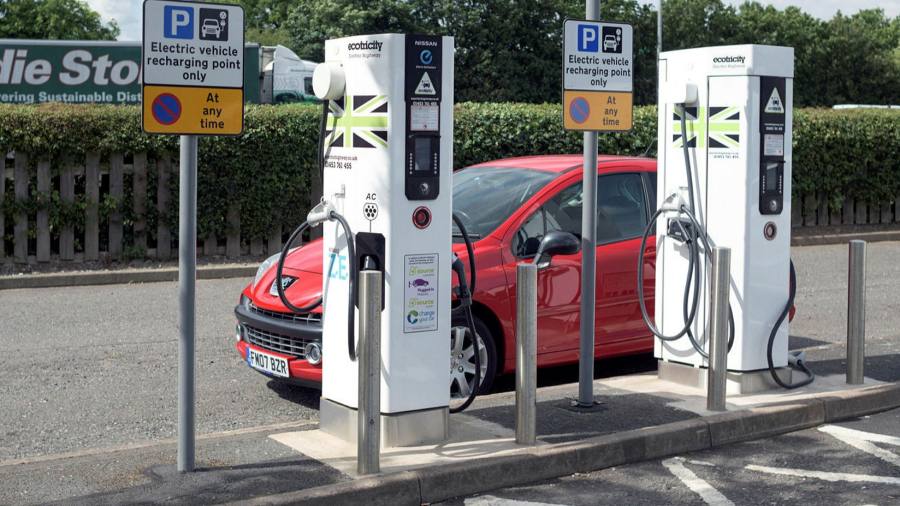[ad_1]
The government wants to encourage more businesses to install electric charging points at motorway service areas in the clearest sign yet of plans to break the monopoly that current provider Ecotricity has on the network.
Transport minister Rachel Maclean told an FT summit that an ambitious expansion strategy will result in every motorway service station offering six superfast chargers in two years, with plans for more than 2,500 nationally by the end of the decade.
Ecotricity has exclusive rights to install charging bays at the UK’s three main service area groups, Moto, RoadChef and Welcome Break, a monopoly that industry groups say is stifling investment that ultimately puts consumers off buying battery cars.
The Competition and Markets Authority, the UK’s monopoly regulator, opened an investigation in December into the charging sector, which is understood to focus in part on the motorway situation.
Ecotricity on Thursday announced it plans to replace all of its 330 public chargers and install up to 12 superfast chargers on its network, in a deal funded by Hitachi.
On Wednesday, Maclean told the FT decarbonisation summit the government is “looking at the competitive position, because we want the private sector to be able to invest ahead of need in the gridâ€, adding that there are “a lot of new entrants into this market already†that could provide the necessary extra investment.
“We are scoping out how we are going to work with industry to ensure the private sector can come in, we want to have a good and reliable and solid network across the country,†Maclean said.
Ministers are also running a consumer consultation on the topic, she added.
“One of the major things that people come to me about is reliability, how to pay, and how difficult it is to find charge points,†Maclean said.
“We want people to be able to undertake those longer journeys, and more importantly, to have an electric vehicle as their main car.â€
The UK plans to phase out the sale of petrol and diesel vehicles by 2030, with sales of hybrids prohibited from 2035.
Fully electric vehicles made up 7 per cent of new car sales last year. A further 4 per cent were hybrids that recharge with a plug.
While sales are rising rapidly, almost tripling during 2020, adoption needs to increase significantly in the next nine years to hit the government’s targets.
The lack of charging points is often cited as a key factor behind consumers not purchasing electric vehicles.
At the summit Maclean also announced a £20m competition to support innovations in electric charging and battery technology.
Two projects will be co-funded by government and industry, with the aim of “targeting innovations in early stage technology,†Maclean said, adding: “We see a thriving ecosystem in this country of smaller businesses, innovative start-ups, and entrepreneurs of all types.â€
Previous similar competitions saw funding awarded to a pop-up charging project and a venture developing hydrogen-powered ambulances.
[ad_2]
Source link






